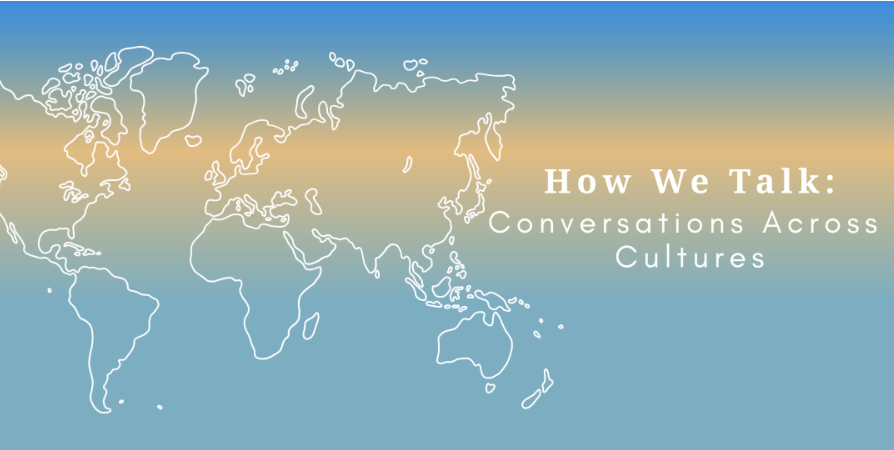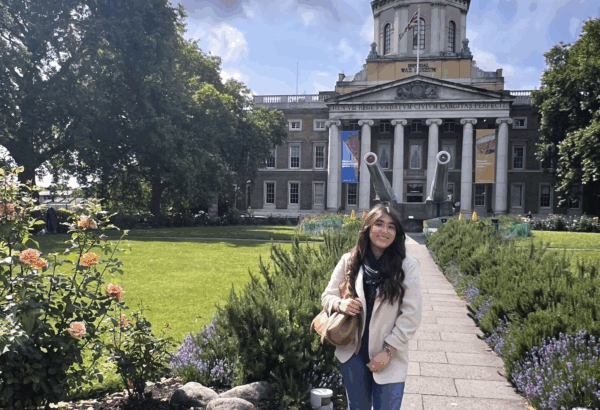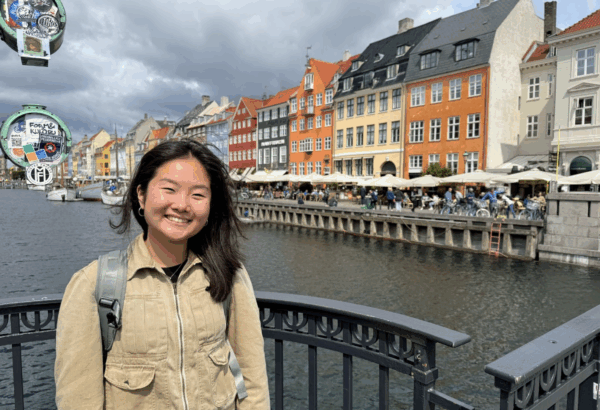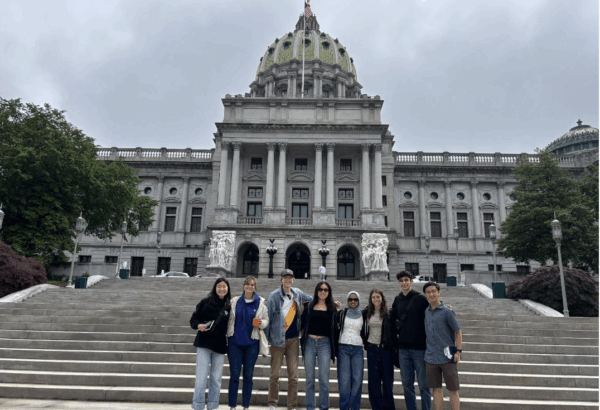Hi! My name is Gabriella. I studied Operations, Information, and Decisions, and I’m from a small town in Western Pennsylvania.
For most Penn students—and probably most college students—this is the classic introduction. From the first day of NSO, we learn to introduce ourselves with this formula: name, major, hometown. Maybe you include your club involvements. This introduction is efficient, but it’s incomplete. We are more than what we study, where we’re from, and what we do. These are important characteristics to understanding each other, but they are not the full story. We are also our experiences and values, our interests and our beliefs. To learn about these, we must go beyond our traditional introductions.
This fall I took the Paideia course Podcasting with Professor Mustazza. Throughout the semester we learned about the importance of listening to sounds and to stories. I was particularly interested in a project called Generation Pandemic, where two students travelled across the United States documenting how young adults were being impacted by Covid. Each story provided a window into understanding what people believe and why they believe it – how personal experiences shape broader worldviews. It reminded me that every opinion is influenced by a unique set of experiences and identities.
Throughout the past four years, I’ve tried to engage with worldviews and opinions different from my own. As a Paideia Fellow, there were many opportunities for this. In Proseminar II, I could listen to guest speakers from a variety of disciplines. Through Red and Blue Exchange events, I could hear from speakers with different political views. I consistently left these events with a new appreciation and understanding for different viewpoints, but I understood that this was a curated experience that I was fortunate to participate in. This realization was the inspiration for my project, How We Talk. My goal was to step outside the classroom to explore how trust is forged, how beliefs take root, and how we can still connect across differences.
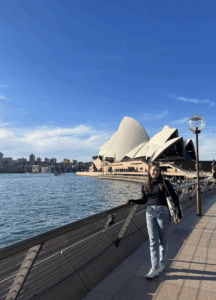
So, I set off to Sydney, Australia, to try to answer these questions. My first focus was trying to understand how trust is initially formed with strangers. As I talked with people in my hostel, I noticed something interesting about how people introduced themselves. Instead of the standard “name, major, hometown” introduction that I’ve grown accustomed to at Penn, people would introduce themselves with only their name. After that, the conversation shifted: Why are you in Sydney? How long are you here for? What do you enjoy doing? These questions served as invitations to share stories, not just résumés. It was easier to form connections and build trust using this introduction.
However, I’ve learned that there is another element critical to building trust in dialogue – shared interests, beliefs, or identities. In the hostel, it was easy to talk to strangers because everyone shared an interest in traveling. So I left the hostel to see where else I could find shared identities.
This led me to a viewing of The Friend at the Sydney Film Festival. The Friend was first introduced to me as a book that I read in Professor McDaniel’s Existential Despair, so I was excited to see the movie adaptation. I planned to talk to a few people before and after the movie to test my theory of shared interests, but I was able to talk to many more than expected – by random chance, a few minutes into the movie the fire alarm went off. As we waited outside for over an hour, I was able to strike up many conversations with other movie goers. Even a shared interest as small as wanting to watch the same movie opened the door to many other topics. I had conversations about favorite books, learned about other people’s opinions on America’s current political climate, heard about the expat community in Sydney, and discussed thoughts on the Australian school system compared to the United States school system. While I enjoyed learning about all of this, my favorite part about these conversations is that disagreement was welcome and comfortable due to the foundation of common interests and goodwill.
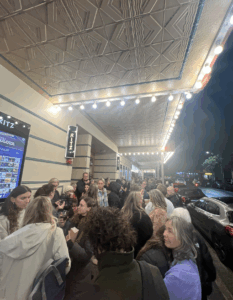
This experience taught me that when we uncover common interests, beliefs, or identities, you begin laying the foundation for agreeable disagreement. The first step is simply to ask a question – something as simple as what movie they’re seeing, or recommendations on places to eat or things to do. The hour I spent waiting outside of the movie theater reminded me that we have a lot in common, but we have to uncover these similarities. Asking people their hometown or job can be a starting point, but trust is built through curiosity – by asking questions that signal you care about who someone is and what they think.
So, with a better understanding of how we form trust, I wanted to understand how we form beliefs. Often, when we disagree, it’s because a core belief or value is threatened. But how are those beliefs formed? Why are some people open to different worldviews, while others are not? These are the questions I carried with me through Southeast Asia and Europe as I entered the next stage of this project – exploring how our experiences influence our beliefs, and how these beliefs influence the way we engage with others. My next reflection will share the insights I uncovered along the way, so stay tuned!
Gabriella Gibson (W’25), Operations, Information, & Decision Processes and Environmental, Social, & Governance Factors

